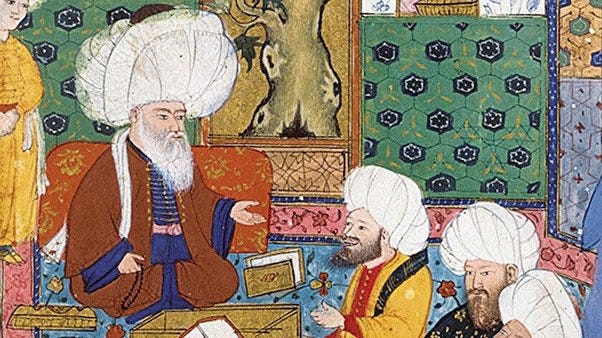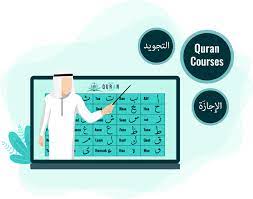Islamic Contributions to Mathematics and Astronomy
The world owes a huge due to Islamic scholars who in the middle ages their contributions to astronomy and math established the basis for much of the modern understanding. The article we’ll explore the amazing accomplishments of Islamic philosophers, looking at their advances in trigonometry, algebra and Astronomy, and the immense impact they had on the path of science. Introduction: The Islamic Golden Age, spanning between the 8th and the 14th century was an time of unmatched intellectual growth and discoveries. The most important aspect of this period were the pioneering contributions of Islamic experts in the areas of astronomy and math. They did not just advance the science but also played an important function in the preservation and transmission of knowledge derived from ancient civilizations. Early Islamic Scholars: One of the most important people of the early Islamic time was Al-Khwarizmi who is often known as”the “father of math.” Al-Khwarizmi’s pioneering work in algebra laid the foundations for the next generation of mathematicians. His methodical approach to solving quadratic and linear equations revolutionized math, providing concepts and methods that are still taught today. Another illustrious figure of the time was Al-Battani an mathematician and astronomer who made notable progress in trigonometry. Al-Battani’s precise measurement of celestial bodies, as well as advances in trigonometric calculations became the basis for future astronomers. Preservation and Translation: Islamic scholar were not just authors of knowledge but were they were also the most meticulous keeper of the wisdom of the past. They played a key role in the translation of Greek as well as Roman text into Arabic as well as ensuring the continued existence of the most valuable scientific knowledge. These translated works were the basis for subsequent Islamic developments in astronomy and mathematics. House of Wisdom House of Wisdom: The House of Wisdom, established in Baghdad during the Abbasid Caliphate, grew into an open space for intellectual exchange. Scholars of diverse backgrounds met to exchange ideas, research and develop existing knowledge. The learning center became an ideal place for the integration of both ancient and Islamic concepts, and created an environment that encouraged creativity. Algebra and Algorithms: Al-Khwarizmi’s contributions in algebra went beyond the simple equations. He developed systematic methods for solving problems, which was essentially the foundations to enable algorithmic thought. The word “algorithm” itself comes by his initials, which demonstrates the lasting impact of his work in the field of computer science today. New developments in Trigonometry: Al-Battani’s trigonometry achievements included precise calculations of trigonometric values and advances in the field of spherical trigonometry. His work was not just influential to Islamic scholars, but also left a mark on European mathematicians in his time in the Middle Ages. Islamic Astronomical Instruments: Islamic scholars created sophisticated instruments for astronomical observation. Instruments like the astrolabe the quadrant and celestial globes allowed precise measurements, and also contributed to better understanding of celestial motions. The Astrolabe: The astrolabe is a multi-faceted instrument that could be used to solve a variety of problems that concern timekeeping and navigation, came to be associated with Islamic Astronomy. Its widespread usage during Islamic civilization, and its later spread to Europe highlighted its importance in developing navigational and astronomical understanding. Islamic Calendar Systems: Islamic scholars developed precise calendars that were built on lunar cycles, vital for religious rituals and timekeeping. These calendars, such as the popular Hijri calendar, showed an knowledge of the astronomical phenomenon. Navigation and Cartography: Islamic innovations in navigation are significant. Navigators and sailors relied on celestial observations to identify the direction of travel and exact location. Furthermore, Islamic cartographers created detailed maps, which further helped trading and navigation. Golden Age of Islamic Science: The Islamic Golden Age saw an incredible growth of literary, scientific and artistic pursuits. Islamic scholars were not just experts in astronomy and mathematics, but as well in the fields of medicine, philosophy as well as other fields. The thriving intellectual environment laid the foundation that would be the basis for Renaissance and the subsequent revolutions in science across the West. Transmission of Knowledge to the West: In the course of time, as the Islamic Golden Age waned, the knowledge that was accumulated throughout the Islamic world was transferred into medieval Europe through numerous channels. The transfer of knowledge made an enormous impact in the European Renaissance, sparking a new interest in classical education and opening the way to the science revolution. Contemporary Influence: A legacy from Islamic contributions continues to influence modern science. Concepts that were developed through Islamic mathematics and scientists have a continuing influence on different science disciplines. Recognizing the historical roots of these concepts is crucial in understanding the many different sources of our current knowledge. Questions and Controversies: In spite of the fact that they have made significant contributions, there are debates and controversies that concern the assigning of particular discoveries to certain scholars. The distinction between historical facts and myths is not easy that scholars are still attempting to engage in a rigorous academic debate to uncover what is true behind the stories. Contemporary Recognition: Contributions of Islamic mathematicians and astronomy have received greater acceptance in the present. The world’s leading universities recognize the central contribution of Islamic thought leaders in determining the course of science and technology. Initiatives to promote cultural understanding and diversity have further emphasized the importance of acknowledging and celebrating the contribution of scholars from diverse cultures. The challenges of preservation: While the efforts to preserve the works from Islamic scholars were enormous however, there were challenges that arose throughout the years. Certain manuscripts of the past were lost, damaged or were lost to the world. The efforts to retrieve and digitize these documents continue, highlighting the importance of saving documents from the past for the next generation. Educational Impact: The influence of Islamic contributions is felt throughout modern education systems. Algebra, algorithms, as well as trigonometry concepts, created through Islamic scholars, are fundamental aspects of mathematics curriculums across the globe. The teachers focus on the historical context while encouraging greater appreciation for the foundations of knowledge in astronomy and mathematics. Intersection of Art …
Islamic Contributions to Mathematics and Astronomy Read More »





